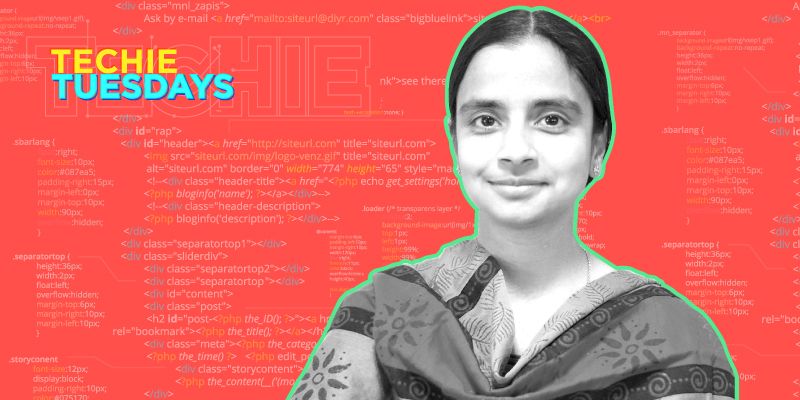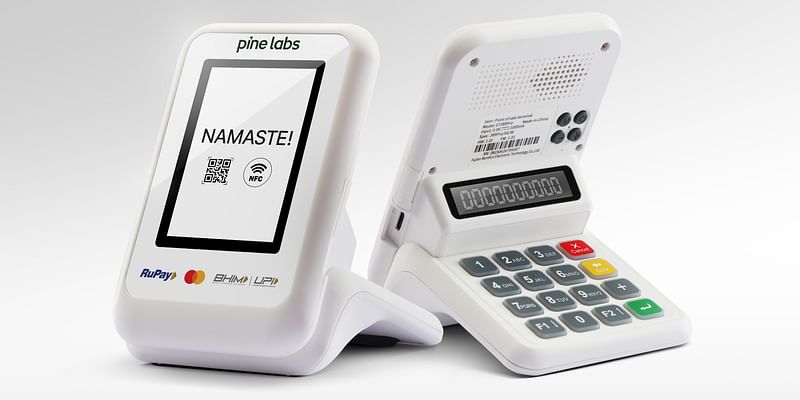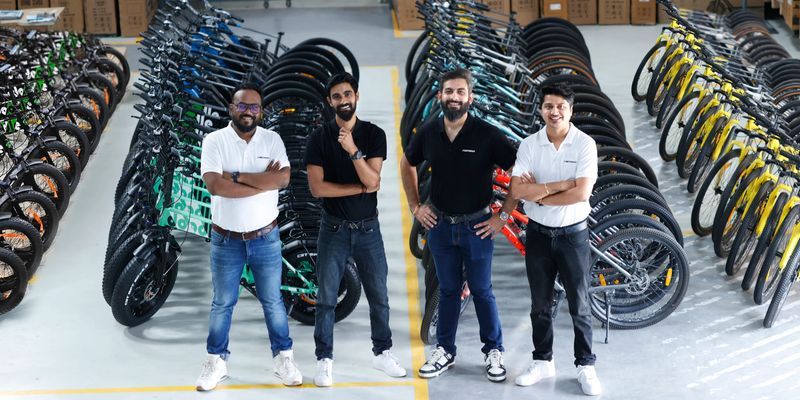Meet Leena N, the woman evangelising lean thinking and extreme programming in India
This week’s Techie Tuesdays is the story of Leena N, a pragmatic and passionate programmer, lean thinker, and extreme programming evangelist hooked to continuous delivery. A mother of two, she’s the co-founder and head of engineering of nine-year-old startup Multunus.
Leena N is a known name in the tech community in India, and here is a disclaimer: her success has nothing to do with the lack of female techies in the country. Her sheer passion for programming, clubbed with her advocacy of extreme programming and continuous delivery, makes her the unique techie she is, and also the protagonist of Techie Tuesdays for the week.
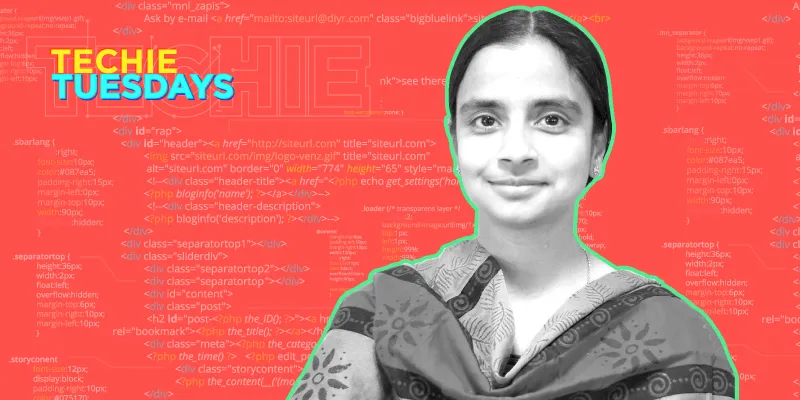
As was the case with one of our earlier techies, Leena, a commerce graduate, discovered a love for programming at a later stage in life. For Leena, a mother of two, it’s impossible to imagine a life without work, and yet she doesn’t give off that workaholic vibe. A trained Mohiniattam dancer and violin player, Leena has a flair for classical dance and carnatic music. Her enthusiasm, urge to learn (and unlearn) new technologies, and professionalism have held her in good stead. In a recent conversation with YourStory, she gave a sneak peek into the same.
Related read - ‘Now is an excellent time for women in tech,’ says Cynthia Srinivas, Director, Product Infrastructure at Intuit
The source of art and the accent
Leena giggles, “I don't have to say I'm from Kerala. The moment I open my mouth everyone will know.”

Though she was born in Delhi in 1976, her family moved to Kerala—first to Trivandrum and then to Ernakulam—three years later, because her father, who worked for BHEL, was keen to return home, where he joined Keltron, the state electronics enterprise.
Leena recalls her childhood days in Kerala,
I was a quiet child and had very few friends. May be I was a little afraid of humans. I was obedient and didn’t create much trouble for my parents.
Leena has always been inclined towards music(carnatic) and dance(classical). She recalls watching Kathakali performances through the night on several occasions. Later, she started learning Mohiniattam because although the mudras (hand gestures) were the same, they required relatively less strength. After learning the dance form for about five years, she learnt to play the the violin as well.
Commerce graduate who fell in love with computer programming
Leena opted for commerce after 10th standard because of her disinterest in science. Her father was also keen for her to become a CA. Leena finished her B.Com in 1996 and joined a computer course at NIIT. She soon developed a love for it and dropped the idea of becoming a CA. She started programming in C, C++, and Visual C++.

She then joined a nearby institute as a computer programming teacher. She says,
Java was becoming popular then and the institute wanted to train students in it but none of the teachers knew it. So, they asked if I could learn and teach. I used to learn and then teach the next day.
Though she was enjoying teaching, she realised it wouldn’t give her the chance to put her newly acquired skills to use. Around the same time, some of her friends went to Bengaluru to look for jobs. Without her knowledge, one of her friends submitted her résumé and she got a call for an interview. That’s how Leena landed her first job as a programmer at Core Objects (later acquired by Symphony Services in 2010).
Related read: How a small-town commerce graduate became CTO of a multibillion-dollar company
Work–marriage–work
At Core Objects, Leena mostly developed web apps for startups, many of which hadn’t even been launched.
After a year, Leena got married, but was clear about not stopping work. However, when her older daughter was two years old, she started finding it difficult to strike a balance. She says, “I wanted to take up something less exhausting at that moment, and got referred to PSI Data Systems. I slowed down but didn't stop.”
She left the company in six months and joined another startup, Zensutra, where she worked on document registry (somewhat like Google Docs along with a good amount of search). Unfortunately, the product couldn't scale up and the company shut down, after which Leena joined NIIT Technologies. Working on WebSphere, she asked the authorities to move her to the more flexible Jboss, but the company’s tie-up with IBM made it impossible. She says, “I was finding it difficult to make deployment because of restrictions in WebSphere. If they wanted to deploy from a developer machine they would create a web application archive (WAR) file. Even the version control system was horrible. At that point of time, I wasn't aware of continuous integration/delivery—building predictability and sustainability in software delivery.”
Leena automated the entire deployment there and gave everyone shell scripts. This ensured that when someone checked, it would take the latest files, creating a WAR. Later, you could download the app from a specific place and then SSH (a cryptographic network protocol) or FTP to your server. She learnt that this deployment system had been in use for a long time.
Also read: Meet Krishnan Narayanan, the techie who moved to mountains to code
Core Objects II–meeting her future co-founder
Core Objects called Leena back in 2006, to which she agreed, with a few conditions:
- She would work from home for a few days
- She would no longer be available late at night and on weekends.
Leena started working with Vaidyanathan Bala (Vaidy), who later co-founded Multunus with her. In her second stint, Leena spent two years at Core Objects, the highlight there being a project on a price-comparison portal. It was in Java using Spring framework and hibernate tool along with Tomcat and Jboss.
As things weren't going great at Core Objects, Vaidy left the company to start up. Within six months, Leena joined him as a co-founder and head of engineering. She knew the risks involved in starting up and had set the right expectations for her family as well.
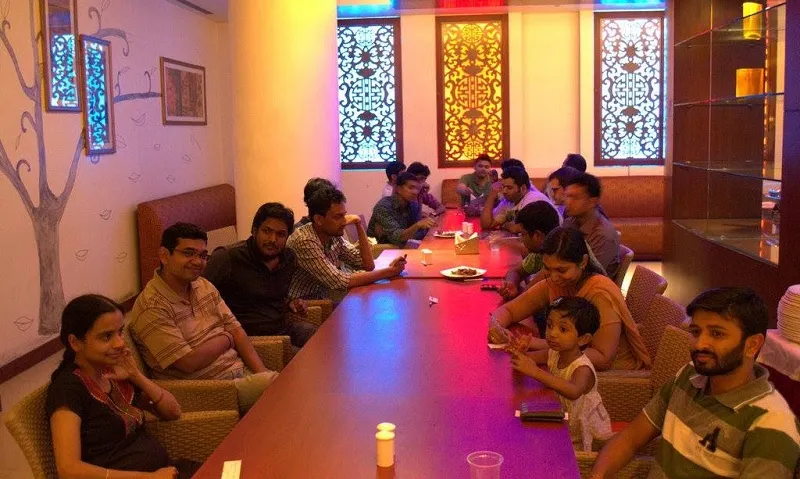
Head of engineering
With clients coming in from the connections they had made at Core Objects, the work at Multunus was similar too.
One of the early projects was to build a web app to compare your profile (you had to upload your profile pictures on a platform) with that of a celebrity and then come up with the celebrity you were the closest match to. Called HumShakal, it was a kind of image comparison tool. As Multunus started exploring Ruby on Rails (one of the first ones), they started to be known as Ruby Shop.
Also read - Meet the co-creator of Julia programming language, Viral Shah
As the workload increased and things started going the same way as they had at Core Objects, the founders could feel the burnout and started looking for some changes, ultimately taking inspiration from The Art of Agile Development by James Shore. Leena says,
The idea of agile programming is that everything is continuous—design, development, and delivery.” She was also exposed to extreme programming and test-driven development.
Leena came to know about the lean startup movement and idea validation (before writing code). She started educating Multunus’ prospective customers about idea validation even if it was against her business. This led to a drop in their startup clients.
Through word of mouth, Multunus started getting requests from enterprises to build their products. Enterprises usually had more money and had validated their ideas as well.
The company worked on one interesting project in the American healthcare space. The client wanted to air informative, health-related content on the TVs in clinics and hospitals. They also wanted tablets to be installed in clinics to interact further with the patients. All this had to be remotely managed. Though there were solutions available for remote device management, it was very expensive. Leena and her team built an application with some content where the client could control the devices from the app. The team worked on Android, PhoneGap (HTML framework), and CSS. The backend was Rails. It was deployed on to a specific service provider (as requested, given the compliance). This created a lot of value for doctors and patients. The success of this project demonstrated the power of extreme programming and continuous delivery.
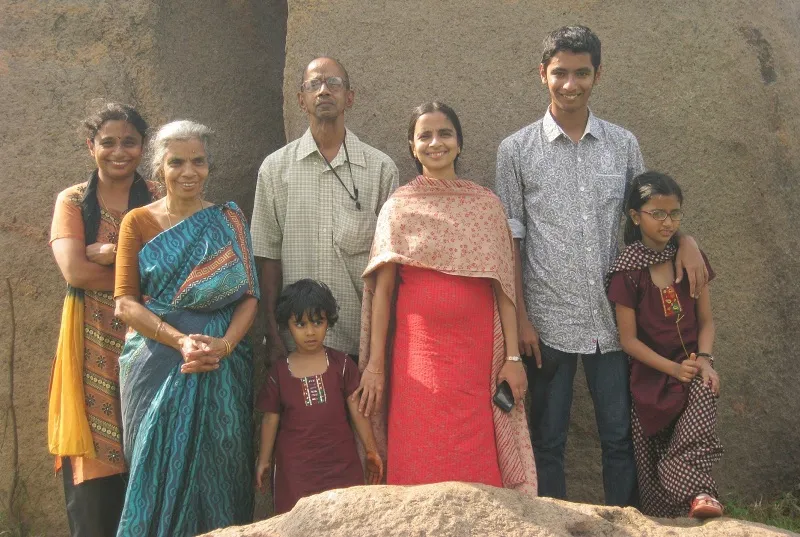
Talking about her role at Mutunus, Leena says,
I bring the discipline in engineering, making sure that we're able to deliver the stuff on a consistent basis, and what we're delivering is indeed what is required. I also make sure that we have a sustainable way of delivery in place, both for the people and in terms of the process.
Related read - Shahani Markus: the woman techie who packs a punch
Pivoting after nine years
Though Multunus started out building products for others, it later got more involved in enterprise consulting. Having successfully done that for a few years, they recently decided to stop. The company is back to being a three-member team and is working on a product in the health and fitness space.
The product is still in the early stages of development. Leena is the only programmer in the team right now. She says, “We're using React for building certain front-end apps (web app). Other stack is Ruby on Rails.”
Extreme programming evangelist hooked onto continuous delivery
Leena has been a part of various conferences like AgileIndia, JSFoo, DroidCon, and even organised the local Garden City Ruby Conference. She mostly speaks about:
- How to get started with continuous delivery, especially practices like continuous integration, and test-driven development
- How to create squads of cross-functional teams focused on delivering value to the customers, using techniques such as impact mapping
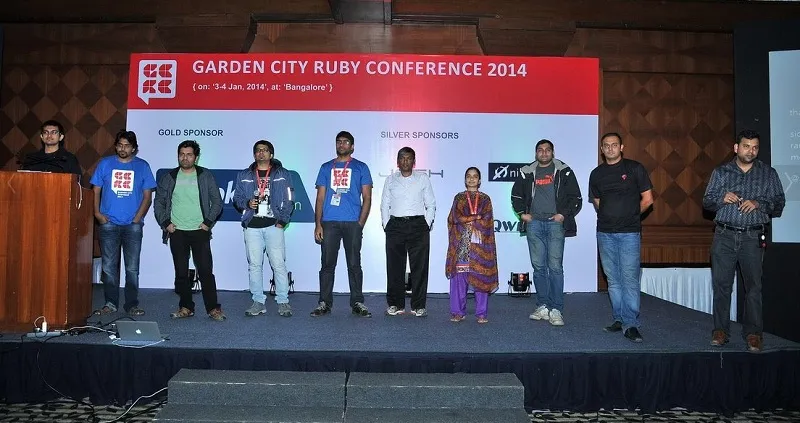
She says,
Unless there's a good collaboration and communication with the business team, the engineering team will deliver what they think is right.
In order to achieve this, you have to get rid of manual testing and manual deployments as you can make more mistakes when you're relying on humans to do certain things.
Hiring guidelines
Leena hired a lot of freshers at Multunus. She says, “We hired people who knew a thing or two about programming, had an appetite to learn more, and were quick learners. They should be good team players.”
Leena always looks for passion, which she measures based on what people have done outside their day-to-day tasks and how much effort they put into improving their knowledge. Since the company didn't have a lot of time to spend on training, employees were allotted mentors at the time of joining. For all the new joinees the following had to be in order:
- Code had to be clean
- It had to be test driven
- The naming had to be correct
- They had to use the appropriate design pattern wherever required
According to Leena, the criteria for evaluation at the time of hiring in Multunus didn’t go against the constraints of a woman. For example, being a mother or in a family environment doesn't stop her from pursuing her passion or from being a team player (where passion and team collaboration are the criteria for hiring).
Leena says, “Any time we have compromised on these guidelines we found the decision to be wrong. A bad hire sucks your energy and isn't good for the company as well.”
According to Leena, you need an attachment to what you're building but also have to detach from the organisation. There has to be a balance. She says,
When you're working on a product, think about who's going to use it, the emotions that person has, whether you can put yourself in their shoes. You won’t be perfect, but try to think about their situation and build it.
You may also like - How an English Literature graduate turned into an instructional designer
Thoughts on work-life-technology
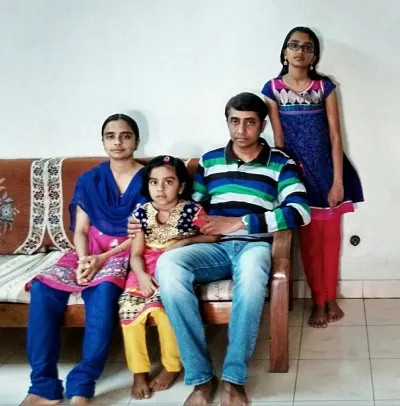
Leena stopped thinking about work-life balance a long time ago. She says, “I just see if I'm able to deliver at work and home when needed. My responsibilities at home haven't become a bottleneck for me.”
She believes that keeping the right expectations from yourself helps in managing stress. She adds,
If you can't do a job, it's not the end of the world. I've trained myself to believe that.
Neither of her daughters likes computer programming but that doesn’t bother Leena. She says, “I'm trying to inculcate a kind of culture where they have something other than regular work (school, curriculum), to look forward to. Only time will tell if I was successful enough in doing this. For now, I'm learning the carnatic music with my younger daughter.”
According to Leena, Technology is a vehicle for solving real-life problems. She says, “I'm not married to any technology, and if I'm required to move to other tools, I'll do it.”
At the same time, she understands there will be techies who have invested so much time in a particular programming language that they know the real power of it, which most of us may be unaware of.
At work and otherwise, integrity and transparency matter the most to Leena. She says,
Even if you're wrong, be open about it. It may be difficult to do at times but that works the best.
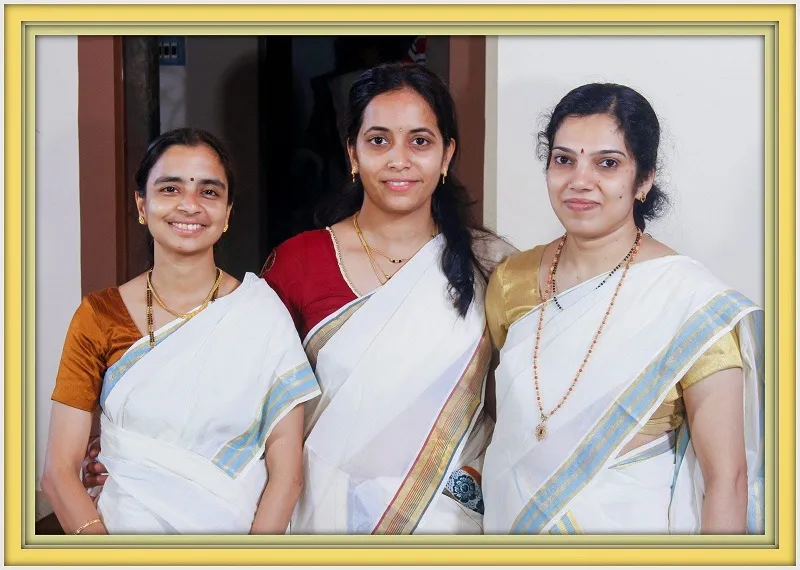
Women in tech (and elsewhere)
If the input at the wider ends of the funnel is low, the output can’t be much. Leena agrees that the low number of women techies entering the system is why there are fewer women in tech. She believes that the thought processes at home need to change. She says, “It's not from the perspective that you have to be equal with men. Rather, it’s more about if you're capable of something, you should take that route. Nothing should stop you.”
Schools and colleges giving a lot of importance to marks and end results are equally responsible for not letting children follow their dreams. She adds, "It's sad to see parents forgetting what their kids are capable of and instead referring to a sheet to decide that.”
She leaves the following message for all the young women out there,
It starts from within. Nothing can stop you if you think you're capable of something. If somebody isn't showing you respect because of your gender, don't let it bother you. You earn respect by doing the right things; the rest is not in your control.
You can find more about Leena's work here or follow her writing or connect with her on LinkedIn.






